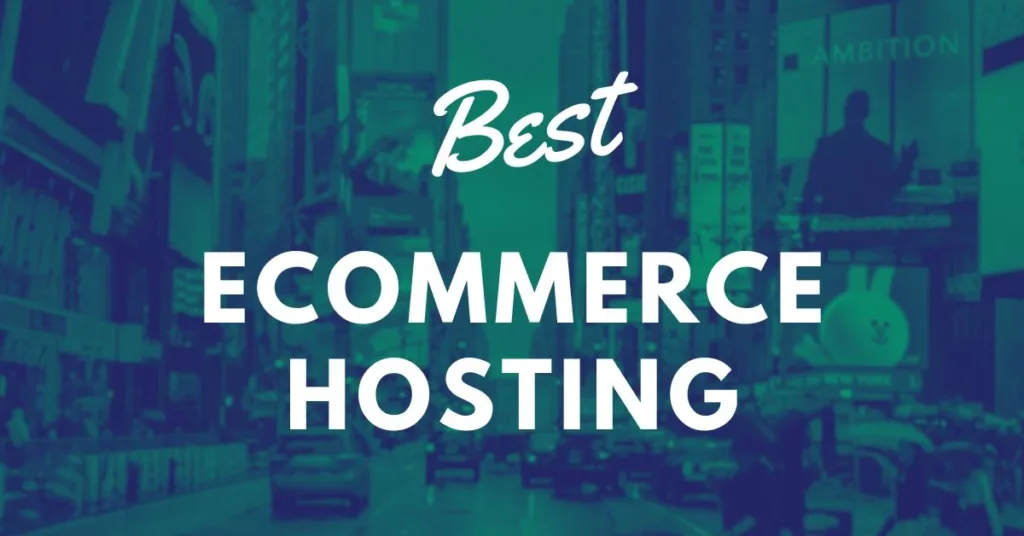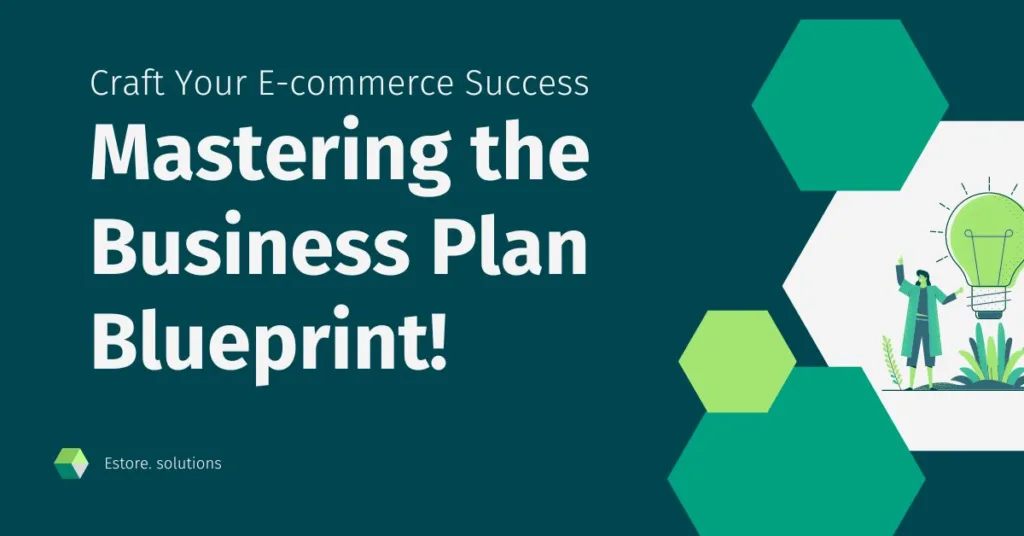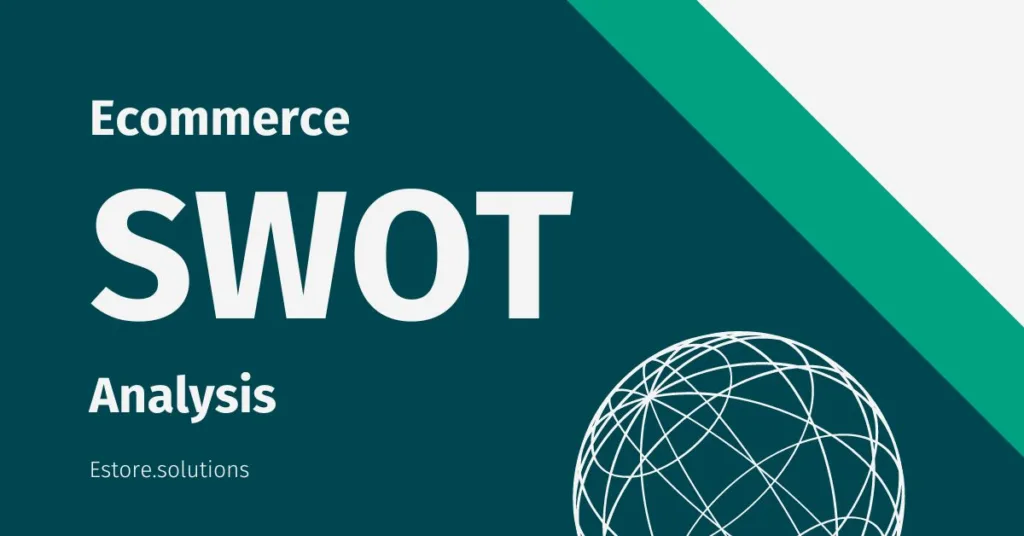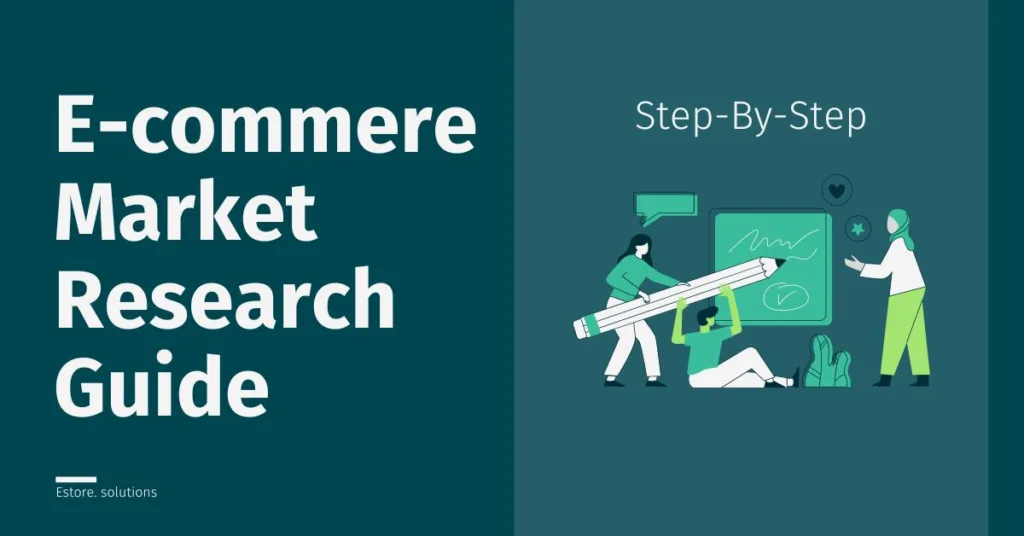Dive into the world of online retail with our curated ecommerce platforms list, unveiling the top 5 solutions. Elevate your business with cutting-edge online shop platforms, ensuring success in the competitive digital landscape.
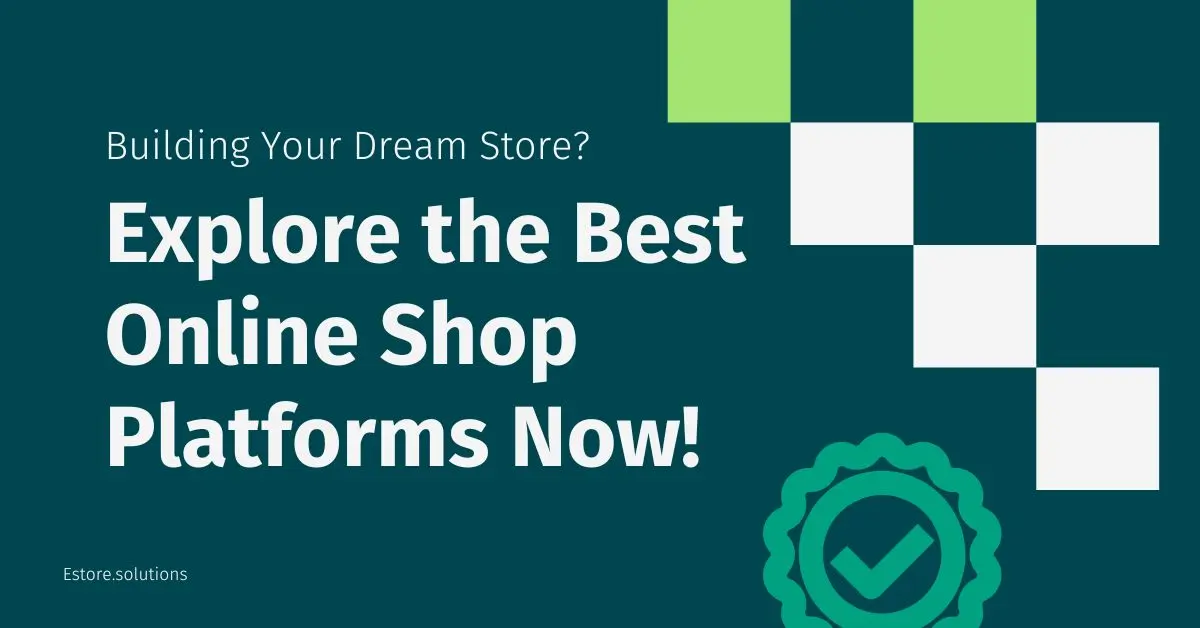
Share the wisdom! Spread the word about the best ecommerce platforms on estore.solutions. Your feedback matters – help us improve and unlock even more valuable content for your online journey. #EcommerceSuccess
Highlights:
In the fast-paced world of online business, choosing the right ecommerce platform is crucial. Our meticulously crafted ecommerce platforms list features the top 5 online shopping platforms. Discover user-friendly interfaces, diverse features, and seamless payment options. Whether you’re a startup or an established enterprise, these online store platforms cater to your needs. Dive into the world of ecommerce with confidence, knowing you’ve got the best tools at your fingertips.
Key factors to consider when selecting an ecommerce platform
| Ease of Use: | User-friendly interfaces for hassle-free navigation. Intuitive design ensures a seamless online shopping experience. |
| Features and Customization: | Robust features catering to diverse business needs. Extensive customization options for a unique online store. |
| Payment Gateways: | Secure and varied payment options for customer convenience. Integration with leading payment gateways for seamless transactions. |
| Scalability: | Platforms that grow with your business. Scalable solutions adapting to evolving business requirements. |
| Pricing and Fees: | Transparent pricing structures. Evaluation of subscription plans and additional fees for cost-effective choices. |
Top 5 Ecommerce Platforms
A. Shopify:
- Overview:
- Founded in 2006, Shopify stands as a leading ecommerce solution.
- Famous for its user-friendly interface and wide app integration.
- Key Features:
- Offers a range of customizable templates and advanced features.
- Seamless integration with various third-party apps.
- User Interface and Customization:
- Intuitive interface, making it easy for beginners.
- Extensive customization options for a personalized storefront.
- Pricing Structure:
- Subscription plans catering to different business sizes.
- No transaction fees for stores using Shopify Payments gateways.
- Pros and Cons:
- Pros: Robust features, and excellent customer support.
- Cons: Transaction fees on non-Shopify payments.
B. WooCommerce:
- Overview:
- An open-source WordPress plugin for ecommerce.
- Launched in 2011, known for its flexibility and customization.
- Key Features:
- Seamless integration with WordPress websites.
- Provides extensive extensions and themes for customization.
- User Interface and Customization:
- Familiar WordPress interface for ease of use.
- Highly customizable through various plugins and themes.
- Pricing Structure:
- WooCommerce plugin is free, but costs may be incurred for additional extensions.
- No transaction fees, but payment gateway fees apply.
- Pros and Cons:
- Pros: Flexibility, extensive community support.
- Cons: Requires a WordPress site, may need technical knowledge.
C. Squarespace:
- Overview:
- Squarespace entered the ecommerce scene in 2013.
- Known for its all-in-one platform with website building and ecommerce.
- Key Features:
- Stunning and responsive templates for a professional look.
- Integrated blogging features for content marketing.
- User Interface and Customization:
- Drag-and-drop builder for an intuitive experience.
- Limited but stylish customization options.
- Pricing Structure:
- All-inclusive pricing plans covering website and ecommerce features.
- No transaction fees for the eCommerce store, but third-party payment gateway fees apply.
- Pros and Cons:
- Pros: Elegant templates, and seamless integration.
- Cons: Limited third-party app marketplace.
D. Wix:
- Overview:
- Launched in 2006, Wix is a popular website builder with e-commerce capabilities.
- Known for its drag-and-drop interface.
- Key Features:
- Offers a range of visually appealing templates.
- Wix App Market for additional features and functionalities.
- User Interface and Customization:
- Intuitive drag-and-drop builder for easy customization.
- Wide range of design elements for personalization.
- Pricing Structure:
- Various plans cater to different business needs.
- Additional fees for ecommerce-related features.
- Pros and Cons:
- Pros: Easy to use, visually appealing designs.
- Cons: Limited scalability for large businesses.
E. Ecwid:
- Overview:
- Established in 2009, Ecwid is an ecommerce solution known for its flexibility.
- Can be integrated into existing websites.
- Key Features:
- Seamless integration with various website platforms.
- Supports multiple sales channels, including social media.
- User Interface and Customization:
- Easy integration into existing websites with a simple setup.
- Limited standalone customization but offers flexible integrations.
- Pricing Structure:
- Free plan available; premium plans offer additional features.
- Zero Transaction fees for all plans.
- Pros and Cons:
- Pros: Easy integration, and flexibility.
- Cons: Limited standalone customization options.
Comparison and Conclusion
A. Comparative Analysis of the Top 5 Platforms
- Side-by-Side Feature Comparison:
- Shopify excels in user-friendliness and extensive app integration.
- WooCommerce stands out for flexibility, especially for WordPress users.
- Squarespace offers an all-in-one solution with elegant templates.
- Wix provides a visually appealing, easy-to-use platform.
- Ecwid is praised for its flexibility and seamless integration options.
- Pricing Comparison:
- Shopify and Squarespace have inclusive pricing plans.
- WooCommerce is budget-friendly but may incur costs for extensions.
- Wix has various plans, additional fees for ecommerce features.
- Ecwid offers a free plan and zero transaction fees for plans.
- Strengths and Weaknesses Summary:
- Shopify: Robust features, user-friendly; transaction fees on non-Shopify payments.
- WooCommerce: Flexibility, community support; requires a WordPress site, technical knowledge.
- Squarespace: Elegant templates, all-in-one platform; limited third-party app marketplace.
- Wix: Visually appealing, easy-to-use; limited scalability for large businesses.
- Ecwid: Flexible integration, multiple sales channels; limited standalone customization.
B. Final Recommendations
- Consideration of Specific Business Needs:
- Choose Shopify for a hassle-free, feature-rich experience.
- Opt for WooCommerce if flexibility and WordPress integration are priorities.
- Squarespace suits businesses desiring an all-in-one solution with a sleek design.
- Wix is ideal for those who prioritize visually appealing designs and simplicity.
- Ecwid fits businesses seeking flexibility and easy integration into existing websites.
- Closing Thoughts on the Best Fit for Different Scenarios:
- Each platform caters to unique business needs.
- Consider your budget, scalability, and customization requirements.
- Explore trial versions to experience the platforms firsthand.
- The best fit depends on the nature and scale of your ecommerce venture.
- Make an informed decision for sustained online success.
